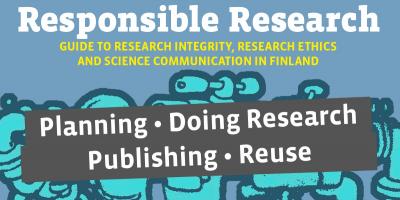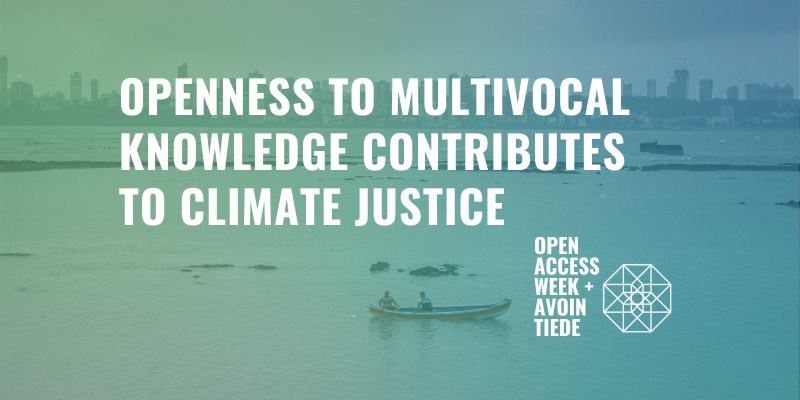Science also has an impact in supporting decision-making at national level, knowledge-based leadership and developing operating practices.
Science and scientists also have an impact on wider society outside the science campus in many different ways. In their teaching work especially, researchers influence the training of new knowledgeable experts in different sectors of society. Researchers have an impact on scientific progress through high-quality research and research results, and international collaboration, and thus also shape our image of the world around us and our concepts of things and what they mean. Research data also helps us to make better choices as we go about our lives. Long-term research work, scientific breakthroughs and new inventions are also essential for business and the economy.
As well as the above effects, which might appear obvious, researchers are also expected to engage with the rest of society to a greater extent and ensure that research results have an impact. One of the ways in which these expectations can be met is through science communication in various forms. Writing expert columns, blogs and other publications that popularise research and giving different public presentations enable researchers to present the latest research findings to the public, shed light on the daily life of a researcher, offer new viewpoints and take a stand on issues, and, where necessary, also demolish fossilised concepts.
Science helps to resolve troublesome challenges
Science also has an impact in supporting decision-making at national level, knowledge-based leadership and developing operating practices. The role of science becomes more important when the issues to be resolved are broad and difficult. Decision-making often runs up against complicated challenges that take wide-ranging, high-quality research data to resolve.
The role of science becomes more important when the issues to be resolved are broad and difficult.
Decision-making at national level is a complicated phenomenon that involves incorporating differing viewpoints, values and facts. In making value judgements, the decision-maker also has to take into account many other factors, but it is important to raise differing alternative solution models to ensure that the decisions made are founded on information that is as comprehensive as possible, well-founded and based on proof.
Research to support decision-making is conducted in strategic research programmes, for example, and in the projects run by the Government’s analysis, assessment and research activities (VN TEAS). The 3–6 year strategic research programmes seek solutions for demanding social challenges that require a wide-ranging interdisciplinary approach. Shorter VN TEAS projects, on the other hand, produce information and perspectives to meet knowledge needs defined by the Government which may be extremely urgent. Both emphasise ongoing cooperation between those producing the information and those making use of it.
Strategic research programmes have included investigating changing administrative practices, know-how and the world of work in the future, means of preventing exclusion, and sustainable growth and adaptation. Topics studied in the Government’s analysis, assessment and research projects include making use of open data in public administration, opportunities offered by renewable energy and the circular economy, means of boosting employment, and Finland’s cyber security status now and in the future.
Trust, timing and frequent dialogue important
As well as aiding efficient decision-making and high-quality drafting of legislation, openly available research data can also help to promote social debate on important topics, increase cooperation between information producers and different stakeholder groups, and safeguard and maintain trust in decision-making.
More researched data is being produced than ever before in human history, and it is also more easily accessible. If relevant information is to be obtained from the vast mass of data, its producers must be capable of guaranteeing the quality of the researched information, gathering it together and picking out the most essential information for the people who need it.
Trust is the most important factor in interaction between researchers and decision-makers. Without mutual trust, there can be no functional interaction. The time frame is also an essential element, as information often needs to be obtained at an early a stage of the policy cycle as possible.
The forms of collaboration must also be functional. To guarantee that the researched information produced is made use of, researchers and decision-makers should work closely together from the initial discussion on policy action all the way to ex-post evaluation of the actions chosen. Researchers can highlight their input through reports, policy briefings or informal discussion, for example. Data must be offered in a pithy and visually interesting form, so that those making use of it can quickly identify the key messages.
Risto Alatarvas, Senior Specialist, Prime Minister’s Office, Finland.
Further information:
Höijer, Laura (2017). Päätöksenteon tueksi luotettavaa tietoa, ei vaihtoehtoisia faktoja. Ynnä Muuta blog by the Ministry of the Environment, 14 March 2017. Available at: https://www.ym.fi/fi-FI/Ajankohtaista/Ynna_Muuta_blogi/Paatoksenteon_tueksi_luotettavaa_tietoa_(42425)
Muhonen, Reetta & Puuska, Hanna-Mari (eds.) (2014). Tutkimuksen kansallinen tehtävä. Tampere: Vastapaino.
Mustajoki, Arto (2005). Tutkimuksen vaikuttavuus: mitä se on ja voidaanko sitä mitata? Tieteessä tapahtuu journal 6/2005: 33–37. http://journal.fi/tt/article/view/58648/20227
Seppälä, Matti (2016). Mielipidekirjoittelu ja yhteiskunnallinen vaikuttaminen. Tieteessä tapahtuu journal 2/2016: 70–75. http://journal.fi/tt/article/view/55957/18449
Strategic research funding: http://www.aka.fi/en/strategic-research-funding/
Academy of Finland (2016). State of scientific research in Finland 2016. Available at: https://www.aka.fi/en/research-and-science-policy/state-of-scientific-research-in-finland/state-of-scientific-research-2016/
Government’s analysis, assessment and research activities: http://tietokayttoon.fi/en/frontpage
Väliverronen, Esa (2016). Julkinen tiede. Tampere: Vastapaino.
You might also be interested in
Tämä teos on lisensoitu Creative Commons Nimeä 4.0 Kansainvälinen -lisenssillä. Detta verk är licensierat under en Creative Commons Erkännande 4.0 Licens. This work is licensed under a Creative Commons Attribution 4.0 International license.

